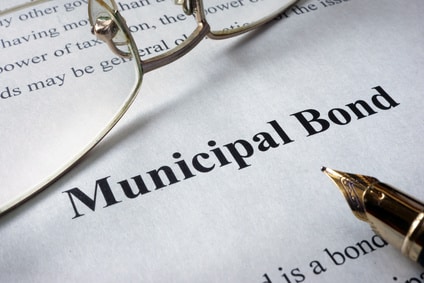The attraction to owning municipal bonds is twofold, limited exposure to loss and tax advantage interest.
With the financial meltdown from 2008, concern over loss exposure has become more and more critical to investors. Many bond owners also purchase insurance on their bonds to ensure safety and security are part of the equation. If you are considering buying municipal bonds, here are three important things to know about insuring them.
1. Municipal bond insurance is only as good as the insurance company backing it.
Many investors have learned that lesson before when companies long thought to be stable were faced with insolvency. The federal government was forced in 2008 to provide a $700 billion bailout of insurance companies guaranteeing bond and mortgage insurance. There are three leading suppliers of insurance for municipal bonds.
• Assured
• National Public Finance Guarantee
• AMBAC
Rating agencies rate these companies with ratings of AA to AA-. Always ask the ratings of the company recommended to guarantee the issued bonds.
2. You will need to pay a premium for the insurance.
Insurance requires paying premiums. Many bond issues will combine the cost of the bond, including the insurance premium. If the insurance is included in the bond pricing, your overall yield will also be reduced. Premiums are based on risk; the more exposure the insurance company has, the more premium they will charge for accepting the risk.
If the bond issuer has a rating of C, premiums for the insurance will be high; the opposite is true; an AAA-rated issue will require far less premium.
Just because a bond is insured doesn’t mean protection is automatic — the enormous failure of bonds issued by Puerto Rico. In May 201, Puerto Rico essentially filed for creditor protection; bondholders immediately turned to their insurance carrier. The bankruptcy court has delayed the insurance liability, and the hope is that an eventual settlement will arrive, but the future is still unclear.
One simple rule, if you are greedy and by lowly rated bonds, an insurance settlement may be more difficult.
3. Ratings are important
Like all things, dealing with those who can meet their financial obligations can reduce stress. Knowing the financial strength of the bond issue is more important than the actual yield being offered. A bond rating is a rating assigned to bonds that indicate their credit quality and ability to live up to their financial obligations. Independent rating services such as Standard & Poor’s, Moody’s Investors Service, and Fitch Ratings Inc. are well-known and accepted companies that provide ratings.



